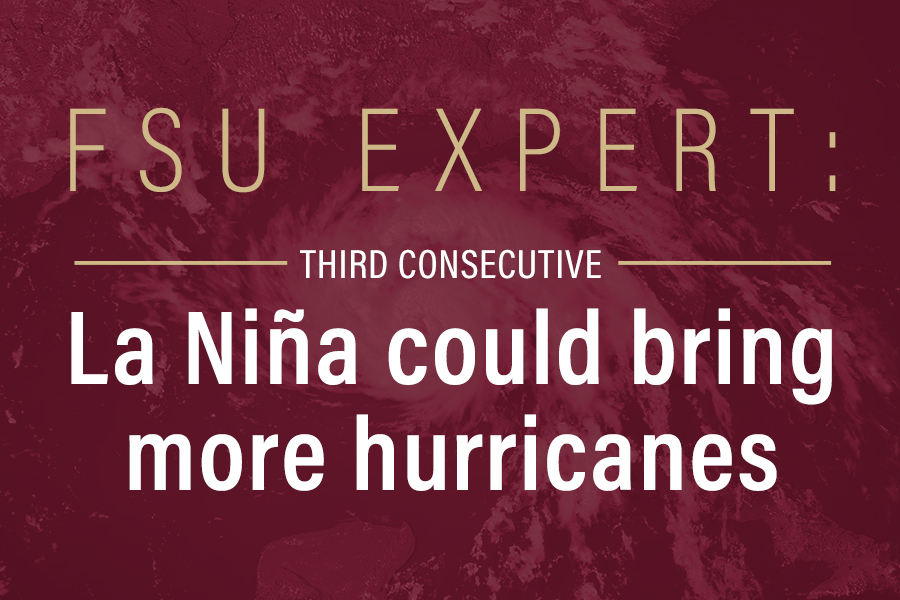
Meteorologists predict current La Niña conditions will persist this year through a third consecutive winter, a situation that usually brings a more active late hurricane season, followed by a dry and warm fall and winter across Florida.
La Niña is the popular name for a phase of what meteorologists call the “El Niño-Southern Oscillation,” or ENSO, a recurring pattern of relatively warmer and cooler surface-water temperatures in the central and eastern Pacific Ocean. El Niño is the warmer period, and La Niña is the cooler period.
David Zierden is a research associate at Florida State University’s Center for Ocean-Atmospheric Prediction Studies and serves as state climatologist for Florida. He is available to speak to media about the forecasted La Niña conditions and their likely impacts in Florida and the southeastern U.S.
David Zierden, research associate, FSU Center for Ocean-Atmospheric Prediction Studies; state climatologist at the Florida Climate Center
(850) 644-3417; dzierden@fsu.edu
As the state climatologist for Florida, Zierden studies climate variability and how it affects agriculture, forestry, water and other industries and resources in the state. He has testified before a congressional committee about predicting and monitoring ENSO and its impacts.
“The El Niño/La Niña cycle is one of the main drivers of year-to-year climate variability across Florida and much of the Southeast. Despite being far removed from the Pacific Ocean, Florida is the state most affected by this fluctuation in sea-surface temperatures. The cold waters during La Niña in the tropical Pacific usually bring an active hurricane season followed by warmer and drier conditions during Florida’s dry season from November to April. This is the third consecutive year of La Niña, which led to a record hurricane season in 2020 and high activity in 2021. The onset of drought and increased wildfire activity usually accompanies La Niña, but the state has avoided these impacts in the last two years. We may not be so lucky going into this third consecutive year.”




